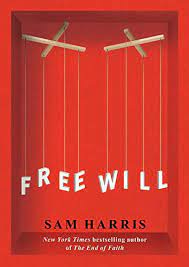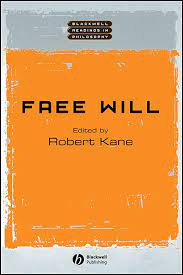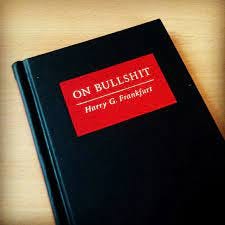Sam Harris Has Nothing Useful to Say About Free Will (UNLOCKED)
Sam Harris has done a lot to promote strident skepticism about free will and moral responsibility. His arguments don't stand up to scrutiny.
During a lecture at Cal Tech in 2012, Sam Harris invited his listeners to “run a little experiment.”
You can replicate the experiment yourself in the next ten seconds or so. “Pick a city, anywhere in the world…any city.”
OK, have the name of a city? Very good. You’ve done the experiment. We can check the results.
“The first thing to notice,” he says, “is that this is as free a decision as you are ever going to make in your life...you have all the cities in the world to choose from, I’m just asking you to pick one.”
A minute later, he circles back to that point. "OK. Did you see any evidence of free will? Now, we better be able to find it here. I mean, if it’s not here, it’s not anywhere.”
After all, he thinks, “this is the sort of decision that motivates the idea of free will” since “you’ve got two our more choices and you’re picking between them…it’s just you and your thoughts.” There’s “no coercion from the external world.”
But when we examine our experience, we’ll see that it wasn’t a free decision. To start with, you weren’t free to choose any of the cities you don’t know about—you couldn’t have picked one of those cities “if your life depended on it.” Nor were you free to choose one of the cities that simply didn’t occur to you. But what about the ones that did occur to you?
Even there, Harris thinks, there’s no free will, since if you honestly reflect on your experiences you’ll realize that you don’t even know why you felt like picking one city rather than another in the moment of decision. You might tell yourself, for example, that you picked Tokyo because you had Japanese food last night “but we know from psychology that these kinds of stories are rather often false.” When people are “manipulated in a lab,” they “always have some story to tell about why they did what they did and it never bears any relationship to the actual variables that cause them to behave that way.”
So we have no control of what thoughts enter our heads, and none over why we act on the ones we act on. We’re being pulled around by psychological forces which we don’t even know about, and the idea of “free will” is nonsense. Accordingly, any moral conclusion that rests on the idea that people bear responsibility for those actions over which they have meaningful control needs to be tossed out since there are no such actions.
Some of you are probably nodding along right now. It’s a fun argument, it rests on some observations that resonate, and Harris is a legitimately talented communicator. If you’re temperamentally or ideologically inclined toward skepticism about free will in any case, you might be inclined to sign onto what he’s saying here without too much more thought.
But look a little closer at his example. Is this really "the sort of decision that motivates the idea of free will”?
Like…really?
Has anyone ever thought that we’re free in the sense of being free to decide things like which city-names will float up to the surface of our minds or strike our fancy in response to a prompt that could be reasonably rephrased as, “Open your mind to whatever random whim comes along and then report it to me”? The whole point of a prompt like that is to take us outside of the sphere of reasoning and planning altogether.
Whether or not free will is anywhere else, of course it’s not there.
To see the point a little more vividly, contrast Harris’s example with a classic example of free will from Jean-Paul Sartre. In his 1946 lecture Existentialism as a Humanism, Sartre talks about how we’re “condemned to be free.” Since there’s no God, no fate or karma or cosmic plan—and to Sartre, this is a terrifying fact about the human condition—it’s up to us to shape the future on our own. We’re “thrown into this world” without being consulted about it and we’re nevertheless responsible for our actions. To illustrate this cosmic “state of abandonment,” he tells a story about a student of his who came to him for advice during the Nazi occupation of France in World War II.
His father was quarrelling with his mother and was also inclined to be a “collaborator”; his elder brother had been killed in the German offensive of 1940 and this young man, with a sentiment somewhat primitive but generous, burned to avenge him. His mother was living alone with him, deeply afflicted by the semi-treason of his father and by the death of her eldest son, and her one consolation was in this young man. But he, at this moment, had the choice between going to England to join the Free French Forces or of staying near his mother and helping her to live. He fully realized that this woman lived only for him and that his disappearance – or perhaps his death – would plunge her into despair. He also realized that, concretely and in fact, every action he performed on his mother’s behalf would be sure of effect in the sense of aiding her to live, whereas anything he did in order to go and fight would be an ambiguous action which might vanish like water into sand and serve no purpose. For instance, to set out for England he would have to wait indefinitely in a Spanish camp on the way through Spain; or, on arriving in England or in Algiers he might be put into an office to fill up forms. Consequently, he found himself confronted by two very different modes of action; the one concrete, immediate, but directed towards only one individual; and the other an action addressed to an end infinitely greater, a national collectivity, but for that very reason ambiguous – and it might be frustrated on the way. At the same time, he was hesitating between two kinds of morality; on the one side the morality of sympathy, of personal devotion and, on the other side, a morality of wider scope but of more debatable validity. He had to choose between those two.
We’re not talking about an arbitrary whim. The student is deliberating based on reasons for and against various courses of action. That strikes me as “the sort of decision that motivates the idea of free will.”
When the world was young and I was in grad school, Harris was one of the “Four Horsemen” of New Atheism. Along with his fellow horsemen Richard Dawkins, Daniel Dennett, and Christopher Hitchens, he rode around proclaiming the non-existence of God and battling the Religious Right.
Later on, he was a charter member of a different group of culture-war flamethrowers—the Intellectual Dark Web. His allies this time around included a religious fundamentalist who believes there shouldn’t be a Palestinian state because God promised the entire Land of Israel to the Jewish People (Ben Shapiro) and a deeply strange Jungian psychologist incapable of giving a straight answer to the question “do you believe in God?” (Jordan Peterson). All that was beside the point, though, because this round of the culture war wasn’t about religion. The IDW’s enemies were censorious green-haired college kids who cared too much about safe spaces and pronouns.
A couple years ago, Harris fell out with his IDW friends over their predilection for conspiracy theories about COVID vaccines and the 2020 election. A segment of his audience was deeply disappointed. They thought he’d changed, but I actually don’t think that’s true.
Since I’m going to spend the rest of this essay giving him a hard time, I want to take a minute here to say one nice thing about him.
Sam Harris may be one of the most consistent and least audience-captured people in media. As far as I can tell, his beliefs and sensibilities in 2023 are indistinguishable from what they were when his first book, The End of Faith, came out in 2004. He’ll sound off on whatever subject happens to swim into the public consciousness at any given point in time, and cheerfully hang out with whoever agrees with him about that subject and then part ways with them when they disagree with him about the next thing, but I see no evidence that he particularly gives a shit what either his collaborators-of-the-moment or his audience thinks about any of it.
His has the worldview of a technocratic-centrist sort of West Coast liberal. He reveres science and expertise and distrusts the energies and passions of people who didn’t go to college. He votes for Democrats, practices meditation, and takes it for granted that the U.S. military is a force for good in a dangerous world.
None of this is even a little bit surprising for a man of his background, education, class position, and cultural context. Honestly, you can’t throw an empty Starbucks cup in Santa Monica without hitting someone who would check every single one of those boxes.
And Harris’s impatience with the “delusion” of free will is a perfect fit with these sensibilities. He sees people as walking bundles of utility, not autonomous agents responsible for their own decisions. Morality and justice are a matter of managing the bundles so as to maximize good consequences and minimize bad ones.
There’s a lot to dislike about these beliefs. But he’s been extremely consistent about them over the decades and I see no reason whatsoever to doubt his sincerity.
I know that a lot of people whose politics are a lot closer to mine than Harris’s would still endorse some of the philosophical premises I just mentioned. For the record, I think that’s a mistake.
I’ve had an essay half-written in my head for a while now called “Being a Leftist Without Being a Utilitarian or a Skeptic About Free Will.” With any luck, you won’t have to wait too many Sundays for that one.
But until then let’s put a pin in the politics of belief or disbelief in free will. Hell, today I won’t even try to convince you of the Definitively Correct Theory of Free Will. I’ll just settle for debunking Harris.
Let’s start with just a little bit of Positions on Free Will 101. If you already know about all this stuff, skip to the next section with my blessing. Some of what comes later refers back to how it’s being set up here, but Philosophy for the People readers are clever people. You’ll figure it out.
OK, now that those nerds are gone:
We can ask two kinds of questions about free will—a conceptual question about what would count as free will and an empirical one about whether anything in reality matches that description.
There are a few different reasons why philosophers in different eras have worried about whether we have free will, but for now let’s stick to the dominant modern worry, which is causal determinism—the idea that everything that happens is ultimately a result of complex chains of cause and effect where the later links in such chains are inevitable given the earlier ones.
A fun way to explain determinism is by thinking about the total state of the universe—the current position of every molecule in existence, for instance—at any moment of time. Causal determinism is the claim that, given the total one any particular “time slice” of the universe is, there’s only one possible way for future time slices to be, since the future is causally baked into the present.
A conceptual question about free will and determinism is whether they’re compatible. In other words, if we live in an entirely deterministic universe—one where in principle a being with God-like knowledge of every aspect of one time slice of the universe could, like, mathematically extrapolate the next time slice and the one after that—could it still be true that some human decisions can be reasonably classified as instances of free will?
An empirical question is whether we do in fact live in such a universe.
You can produce different positions with different combinations of answers to these questions. “No” on the first question and “yes” on the second adds up to “hard determinism,” which is one version of skepticism about free will. The hard determinist thinks free will is an illusion if determinism is true, and determinism is true, therefore free will is an illusion. (I say “one version” since another option is “hard incompatibilism”—the view that determinism and indeterminism are both incompatible with free will. That seems to be Harris’s own view.)
“No” on both questions gets you a position confusingly called “libertarianism.” In political philosophy, “libertarianism” refers at a rough approximation to the idea that the right of rich people to hold onto all their money is more important than the right of poor people not to starve to death or die of easily treatable diseases, so I feel a little bad for free-will libertarians that they have to share a label with that, but in this context “libertarianism” means the idea that we have the kind of free will we wouldn’t have if determinism is true.
Finally, compatibilism is what you get when you answer “yes” to the first question—regardless of how you answer the second one. Sometimes you’ll see compatibilism referred to as “soft determinism,” but I don’t love that terminology because (i) it confuses the issue by making it sound like hard determinists are just more committed to the empirical claim that causal determinism is true than these squishier “soft” determinists—which is wrong, remember, since what the hard determinist and the compatibilist disagree about is the conceptual question—and (ii) many compatibilists aren’t actually committed to answering “yes” on the second question. Compatibilists about free will and determinism are usually also compatibilists about free will and indeterminism, so their position can just be “ask a scientist if determinism is true, that’s not my department, but as a philosopher I can tell you that we have free will either way.”
In his 2012 book Free Will, Harris sneers that compatibilism “amounts to nothing more than an assertion of the following creed: A puppet is free as long as he loves his strings.”
That’s a nice turn of phrase. But is it true?
More precisely: Does it track what compatibilist thinkers are saying well enough to even work as a put-down?
One of the first things Harris says about compatibilists is that they “generally claim that a person is free as long as he is free from any outer or inner compulsions that would prevent him from acting on his actual desires and intentions.” That’s the definition he’s working with throughout the compatibilism chapter of the book. In a later chapter, he says that “certain compatibilists” think “freedom of the will is synonymous with the idea that one could have thought or acted differently.”
His first claim about what compatibilists “generally” think might be more or less accurate as a description of some very simple forms of compatibilism like the one defended by David Hume in the Liberty and Necessity chapter of his Enquiry Concerning Human Understanding. It’s certainly not anything like what the most plausible compatibilist accounts of free will developed in the last century claim. But before we get to all that let’s hone in on that business about “certain” compatibilists.
I’m fascinated his use of the word “certain” there because that’s the only indication I see anywhere in the book that he knows that there are important differences between different kinds of compatibilists. If certain compatibilists believe that, what do the rest believe?
He doesn’t tell us.
Harris’s response to the “certain compatibilists” is very odd. He says that “to say that I could have done otherwise is merely to think the thought, ‘I could have done otherwise’ after doing whatever I in fact did.”
To which I’d respond: No, it’s not. Like, literally, that’s not what “I could have done otherwise” means. What are you talking about?
Perhaps the idea is that it’s the only thing “could have done otherwise” could mean given causal determinism. But that’s still just straightforwardly wrong. I don’t mean, like, it’s wrong because compatibilism is true. I mean, just straightforwardly wrong as a matter of ordinary usage regardless of what’s true about the free will debate.
He claims earlier in the book that the only thing it could mean to say that rapists and murderers were free “not to rape and murder” is “they could have resisted impulse to do so (or could have avoided feeling such an impulse at all), with the universe—including their brains, in precisely the same state it was at the moment they committed their crimes.” But that’s clearly not the only thing it could mean.
In fact, even the most plausible versions of libertarianism about free will don’t set the bar quite this high. The libertarian philosopher Robert Kane, for example, takes it for granted that most of the time we’re just sort of acting on autopilot—our actions are determined by our characters without much thought in the moment, so if we zoom in on the details of a particular action, it won’t be true that we could have done otherwise in the moment. Still, he thinks, it can be true in a morally important way that a rapist could have not raped or murdered if their characters were formed in the right way.
By analogy: If a very drunk driver kills someone, we think it’s true in a morally significant way that he could have not done that even though in the moment he may have been driving as carefully as he literally could have given the road conditions and the conditions in his alcohol-soaked brain—because at any earlier moment when he was in his right mind he could have decided to hand his keys to a designated driver. Kane thinks there are relatively rare but important moments in which different preferences are at war with each other—think of Sartre’s student here—and quantum indeterminacy in the human brain means that you genuinely could have made a different decision in those moments. These “self-forming acts” (SFAs) are when we adjust the settings on our cognitive autopilot.
Now, I’m not compelled by Kane’s account. He’s making a series of empirical assumptions about subjects ranging from psychology to neuroscience to quantum physics that could just be false. And even if he were right about all of the above, I’m not convinced that he’s got the conceptual question—the question of what factors matter for free will—right. I’m a compatibilist. But the point is that Harris’s breezy assertion about the “only thing” it could mean to say rapists and murderers could have not raped and murdered doesn’t even intersect with what the smartest libertarians believe.
Harris’s position seems to be that (i) “you could have done otherwise” means “you could have done otherwise given no changes whatsoever to the time slice of the world immediately preceding your action” and (ii) the only thing anyone who denies this truth could mean when they perversely persist in saying "you could have done otherwise” is sometimes true is that you can tell yourself you could have done otherwise.
But none of that’s right—just as a description of what we ordinarily mean by the phrase “could have.” If you’re playing basketball and you miss a shot at a crucial time, and you say “damn it, I could have made that shot,” how do we understand what you mean? Surely not that you could have made that shot given that every single atom in the universe was configured in exactly the same way as the basketball was leaving your hands. And not just because whether we’re compatibilists or incompatibilists about free will, everyone’s a compatibilist about missed shots. Let’s say you don’t believe that we live in a completely deterministic universe. Maybe you’re totally convinced that the Coopenhagen Interpretation of Quantum Physics is true. Even so, it’s fantastically unlikely that this has a damn thing to do with what you mean when you say “I could have made that shot.”
You’re making a claim, ultimately, about your basketball-playing capacities. Similarly, the “certain compatibilists” are making claims about your capacities to do things like consider alternatives, rationally deliberate between them, and settle on a plan of action.
One thing you absolutely don’t mean in the basketball case is that you could have made the shot even given the exact angle at which you aimed, the exact amount of force you applied, your exact position on the court, and so on. You don’t mean that quantum indeterminacy manifesting in the macroscopic world led you to miss the shot. In fact, if you did believe that, you’d be a lot less frustrated. You mean that holding a bunch of relevant facts—but crucially not all of the relevant facts—constant, there’s a scenario where you would have made the shot. No one evaluating any ordinary “could have” claim is holding all of the relevant facts constant. To use the terminology of David Lewis’s classic paper on time travel paradoxes, what you’re doing is asserting that you making the shot would be “compossible” with a particularly pertinent subset of facts about the situation. And as Lewis points out, which facts belong in the relevant set “is determined, but sometimes not well enough, by context.” So for example:
An ape can’t speak a human language—say, Finnish—but I can. Facts about the anatomy and operation of the ape’s larynx and nervous system are not compossible with his speaking Finnish. The corresponding facts about my larynx and nervous system are compossible with my speaking Finnish. But don’t take me along to Helsinki as your interpreter: I can’t speak Finnish. My speaking Finnish is compossible with the facts considered so far, but not with further facts about my lack of training.
So, what does it mean to say that a rapist or murderer could have done otherwise? Presumably that there’s some interesting and important set of facts about them that would be compossible with their doing otherwise. What facts go in that set? Whichever ones are relevant to what we might means when we talk about, for example, people being “in control” of their actions—when we attribute control to mentally competent adult humans in a reasonably broad range of circumstances and deny it to various other categories of people.
But the more you think about that last point, the trickier it gets, because there are plainly a bunch of different things we could mean by being in control of your actions. Some of them are going to be compatible with determinism and some of them aren’t. It all depends on what goes in that set of pertinent facts. Everything about a relevant time slice of the universe or a more restricted set of facts? If a more restricted set, what’s in it?
At this point, it can start to sound like the free will debate is just a dispute about semantics—that the compatibilist is using the word “can” in a loose way and the incompatibilist is using it in a stricter way but ultimately they’re just talking past each other. We can just say you “can1” do some action and “can’t2” do it and call it a day.
A more useful way to think about the debate is that we’re trying to figure out which sense of “can” is relevant for the contexts we’re interested in—of which the most important is moral responsibility. What has to go into the relevant set of facts for you to be morally responsible for your decisions—for them to be your fault (or to your credit)? Is it enough that your preferences be playing the right role in bringing about the action, or does it matter how those preferences were formed? Does it matter if we’re talking about simple preferences (“I want a cigarette”) or higher-order preferences (“I want to to not want a cigarette, I’m trying to quit”)? Should we be talking about how the process of deliberation works?
There’s a giant complicated debate about these points. One way that it proceeds is by thinking about examples that test different intuitions we have about this stuff. Would this example which meets some definition really count as the kind of free will we need for moral responsibility? OK, how about this one? If your account can’t plausibly cover the example, can you plausible adjust your definition—or do you have to go back to the drawing board?
Harris, in his depressingly popular little book, does exactly none of this. He vaguely refers to the existence of a “vast literature” on the topic at one point. But if he’s read any of it, you certainly wouldn’t know that from reading Free Will.
Everything I’ve said above is framed in terms of compatibilist accounts of “could have done otherwise.” And I do think that some such accounts are considerably more plausible than Harris indicates. But what about the other compatibilists—the ones who presumably disagree with the “certain compatibilists”?
A key figure here is Harry Frankfurt. In the world at large, Frankfurt is probably best known for writing an entertaining and entertainingly titled book called On Bullshit. (He aims there at providing a rigorous philosophical analysis of “bullshitting” and how it’s different from “lying”—a subject that continues to inspire interesting discussion.) He was interviewed by John Stewart about that one on The Daily Show when it came out.
Within academic philosophy, though, Frankfurt is best known for spawning a whole cottage industry of thought experiments called “Frankfurt cases.” These probably deserve an essay of their own some Sunday, and I’m going to resist the temptation to go any deeper than this right now, but basically these are cases in which someone intuitively seems to be morally responsible for something even though there doesn’t seem to be any particularly interesting sense in which they could have done otherwise. So a mad scientist installs a chip in your brain that will go into effect if your thoughts start to drift in a non-rape-y, non-murder-y direction. But your thoughts never do drift that way, so the chip remains inert—it plays no more role in the chain of cause and effect leading up to you committing your crimes than if it hadn’t been there. Pretty clearly, Frankfurt thinks, the existence of the chip isn’t morally exculpatory. You can’t reasonably say, “It wasn’t me, it was the chip.”
This kind of thing—and I know that some of you live and breathe Frankfurt cases and are wincing about how quick and superficial this is, and I’m sorry, I really am, but we have to move on—inspired Frankfurt himself and many subsequent compatibilists to think the kind of “free will” that matters for moral responsibility isn’t a version of “freedom to do otherwise” at all. They de-emphasize the whole question—as independently interesting as it might be—of the semantics of doing otherwise and develop accounts of the kind of control that matters for moral responsibility that are just about whether the right kind of causal chain led to your action in the actual case.
Frankfurt’s own view of the “right sort of chain” is all about those higher-order desires we encountered a minute ago. But I think a much richer and more interesting compatibilist account is the one offered by John Martin Fischer. That account says roughly that you have “free will” in the way that matters for responsibility if your decisions arise from an at least moderately “reasons-responsive” cognitive mechanism. That doesn’t mean you can only be free if you’re perfectly rational. But the relevant capacities we’re talking about when we attribute the kind of control to you that matter for responsibility are capacities for understanding and being at least somewhat moved by reasons for and against various proposed courts of action.
These are the kind of capacities that—although it’s a matter of degree, and there are complicated questions about where the threshold is for moral responsibility—seem to differentiate mentally competent adult humans from non-human animals or even minors with sufficiently undeveloped brains that we excuse things we wouldn’t in adults. Or people suffering from various forms of severe mental illness, addiction, or developmental challenges. And it’s pretty clearly compatible with determinism.
Of course, whether determinism is true or not, you don’t decide whether to have the right sort of cognitive mechanism in your brain for your decision-making to rise to the Fischer standard for free will. To adapt the sort of point Harris loves to make about this, if I swapped bodies and brains—atom for atom and neuron for neuron—with someone who lacked this capacity, I would lack it. I’m lucky to not be that person. Fair enough. But does that mean that, since it’s a matter of luck, I’m not responsible for my actions after all?
By analogy: Magnus Carlsen being very good at chess is, at least to some extent, a matter of luck. He could have been unlucky and been born with a set of cognitive defects that made that impossible. Or he could have grown up in circumstances that weren’t compatible with him spending very much time on the game when he was a kid. Or…etc. But that doesn’t mean that what he does when he plays a game now is a matter of luck rather than skill. Similarly, if you’re capable of understanding and being moved by reasons for and against various courses of actions to an adequate extent, you are in all sorts of ways lucky. You could have been severely mentally disabled, you could have had various kinds of psychiatric conditions, you could have….well, you can come up with all sorts of scenarios. But none of that means that the decisions you make now are a matter of luck as opposed to being under your control.
Is this account correct? That’s a complicated question. There are mega-tons of room for reasonable people to disagree about these issues. But Harris, in his bestselling book introducing people to the issue and the positions—surely the book where most of his readers first heard the word “compatibilism”—simply passes on the opportunity to weigh in on the real debate. Nothing he says there would give a well-informed advocate of any major theory of free will—libertarian or consequentialist—so much as a moment’s pause.
We can disagree about whether it’s Sam Harris’ s fault that he wrote a superficial book full of arguments that collapse given any real scrutiny. Perhaps nothing is anyone’s fault.
But I really wish he’d done otherwise.













I agree with you that compatibilism is correct and Harris isn’t doing a good job of dealing with the best arguments from academic philosophy, even though he has Dennett to explain things to him. But I am not sure this gets at the issue.
The most interesting claim Harris makes is that we not only don’t have free will (however understood) but that we don’t even seem to have free will - even though it seems like we seem to have it. The only way to make sense of that claim is to take seriously Harris’s claims to Buddhist meditation traditions. He is saying if we attend to our own phenomenology we will notice that mental events, including volitions, come unbidden. There is clearly a paradox here since the whole point of meditation training is to give us reasons to attend to our phenomenology differently.
Thus Harris takes up what Marx says is Feuerbach’s attitude of only regarding the thing as an “object of contemplation”, except that he also views his own consciousness this way.
It is only in abandoning the contemplative for the active that it makes sense to talk about a “will”, free or otherwise. If we are engaged in productive activity, then we are always implementing prior ideas in a relationship with nature. These have to be susceptible to reasons so we can coordinate what we are doing with others. And others have to be able to give us reasons to act, which we have to also have the capacity to reject.
In other words freedom (the ability to act on the basis of reasons that we accept but could reject) arises, if at all, in a historical process of social labour, which is also how unfreedom arises.
Great read. Found the Jean-Paul Sartre example about the French boy very interesting. His framing of the two choices I disagree with, it ignores the possibility of the brother choosing to honor his lost brother through fighting, making a free choice to respect the micro and macro at the same time through one choice. And also honoring his mother; even if she feels it disrespectful